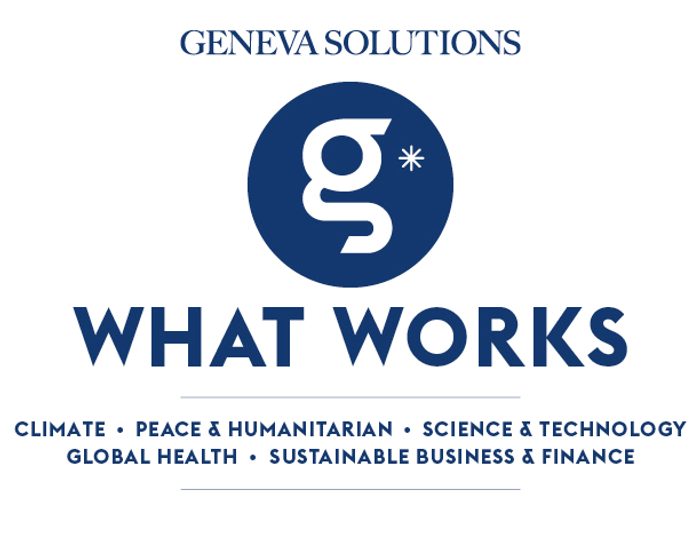Good morning, this is Kasmira. Earlier this year, a United Nations research institute designed a fictional AI avatar based on a Sudanese paramilitary combatant to help diplomats sharpen their negotiation skills. At the AI for Good Summit in July, the ICRC showcased an AI-powered virtual reality training kit to test humanitarians before they go into the field.
And in another example, in our interview today, we talk to Harvard lecturer and former ICRC adviser Claude Bruderlein about a new initiative ensuring new AI tools don’t drain organisations of talent but rather create even better negotiators. |

|

Claude Bruderlein, a humanitarian negotiations specialist and an adjunct lecturer at Harvard Kennedy School of Government, speaking during a session on AI and diplomacy at the Gesda summit on 15 October 2025, (Gesda / Benedikt von Loebell)
|
|
From AI avatars, chatbots, to virtual reality training tools, humanitarian and peacebuilding professionals – as well as tech firms outside the sector – are exploring a number of ways in which artificial intelligence might help them navigate high-stakes negotiations in conflict-hit settings.
Many of these initiatives remain in their infancy, as organisations cautiously pick their way through a minefield of ethical concerns and risks, including data misuse, these AI-driven technologies could bring to vulnerable populations that humanitarians are meant to protect.
For Claude Bruderlein, an adjunct lecturer at Harvard Kennedy School of Government and former strategic adviser to the International Committee of the Red Cross’s (ICRC) former president, Peter Maurer, it’s “high time” that organisations adopt AI frameworks and get on the front foot.
The humanitarian negotiation expert spearheads AI Negotiation Challenge, a US-based non-profit, volunteer initiative launched in January to train practitioners – diplomats, humanitarian workers and mediators – on integrating AI into their work. Through monthly simulations, where they recreate real-world scenarios, cohorts also learn the risks associated with using the technology.
Speaking to Geneva Solutions on the sidelines of the Geneva Science and Diplomacy Anticipator summit in Geneva last month, Bruderlein explained how AI can equip organisations with better negotiators – if they embrace it.
Read the full story on Geneva Solutions.
|
|
Here's what else is happening
-
🌎World leaders rally in support of climate action before Cop30 summit.
Opening the world leaders summit in Belém days before Cop30 begins, UN secretary general António Guterres slammed countries for their "moral failure and deadly negligence" amid reports of 1.5°C becoming "virtually impossible", while Brazilian president Lula Da Silva warned that the window to stave off catastrophic climate change is "closing rapidly".
France24 (EN)
-
🌡️This year set to be among top three hottest, says WMO.
Temperatures in 2025 are poised to sit among the highest ever recorded, according to the UN weather agency’s flagship report, which warns that a temporary overshoot of 1.5°C is no longer avoidable.
Health Policy Watch (EN)
-
🌳How could Tropical Forest Forever fund proposed at Cop30 tackle deforestation?
The scheme, championed by Brazil, aims to raise $125bn to invest in bonds and use the returns to reward countries for their conservation efforts. But support has yet to be guaranteed, with one of its instigators, the UK, announcing it would not pitch in at this stage.
The Guardian (EN)
-
⛰️Shout-out for yodelling? Swiss seek recognition from UN cultural agency as tradition turns modern.
A request to list the traditional singing from the Alps as Unesco intangible heritage is expected by mid-December. Associated Press
Associated Press (EN)
-
👜UN staffers leave Manhattan's urban canyons for Kenya's leafy capital.
Relocations from Unicef, the UN Population Fund, and UN Women, aimed at curbing costs to contend with dwindling donor support while bringing agencies closer to the ground, have begun.
Devex (EN)
|
|
GS news is a new media project covering the world of international cooperation and development. Don’t hesitate to forward our newsletter!
Have a good day!
|

|
|
Avenue du Bouchet 2
1209 Genève
Suisse
|
|
|
|








